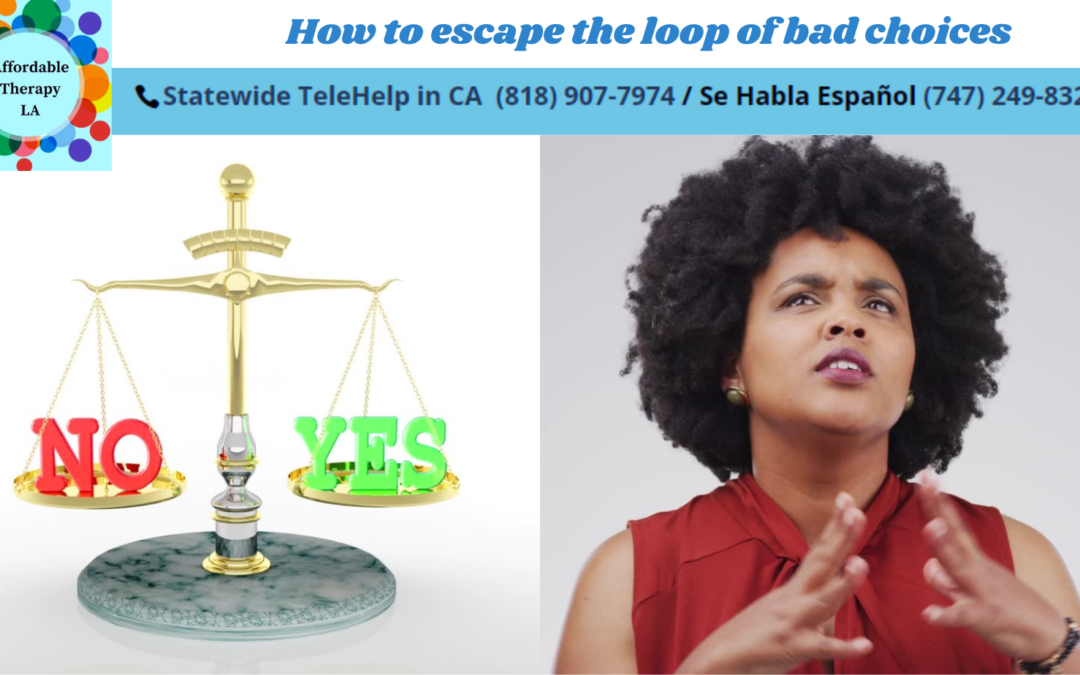How to escape the loop of bad choices
No one enjoys being caught in a loop of making bad choices and repeating mistakes. Yet, often we find ourselves doing just that. We recognize a familiar pattern of mistakes, like the stripes in a fabric, repeating throughout our lives. Perhaps we choose bad partners, or unfulfilling jobs, or harmful lifestyles. Why do we do repeat our bad choices?
An article in Psychology Today finds some common denominators that point to underlying reasons.
Strong emotions
One motivating factor for bad choices is strong emotions. Strong emotions can influence what you say and make you do things that are not reasonable. Anger, fear and grief are examples of such emotions. In anger, you might view your partner in a negative light, finding faults instead of admiring their praiseworthy attributes. Arguments can develop and become a pattern of behavior that spirals out of control. When fear rears its head, you might run away from a terrific job opportunity because you doubt your capabilities, even when unfounded. You find yourself entertaining ideas like “it’s too hard” or “you’ll fail.” If grief overwhelms you, you might binge on sugary or fattening foods, knowing they’re bad for your health and waistline. Yet, you continue turning to food for comfort.
Ego driven responses
You did something wrong. You know it was a mistake but adopt a prideful point-of-view and refuse to admit fault. Narcissists won’t own up to mistakes because mistakes contradict their images of themselves. However, even those of us who aren’t narcissists sometimes get rigid in our perspectives. We become dogged and keep doing the same thing, trying to prove ourselves right, and hoping for a better result. Mistakenly, we decide that persistence is all that’s needed when changing our course of action is the real solution.
Developing resilience
What is resilience? Resilience is the ability to bounce back. It combines positive emotion and rational thought. You can step back, view the problem, admit your mistake and learn from it. It’s smart to accept responsibility and say you’re sorry. Not admitting fault is a dead end road that you don’t want to travel because it prevents learning. After owning up to mistakes, you can correct your actions. You’re preventing strong emotions from overpowering your reasoning process. Moreover, once you’re thinking rationally and have made the right decision, you can proceed with confidence and enthusiasm.
Do you find yourself making bad choices and repeating mistakes?
Professional and compassionate therapists can help you delve into problems and find answers that make your life more enjoyable. If you would like to arrange a session for counseling, you can contact us online or call (818) 907-7974.

